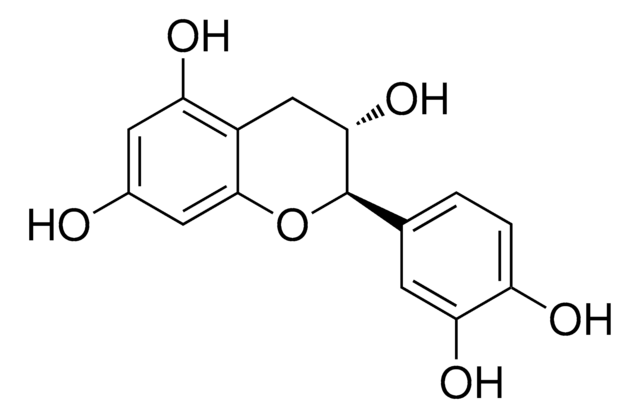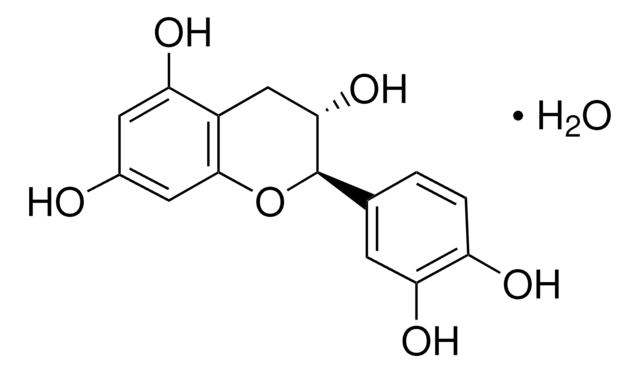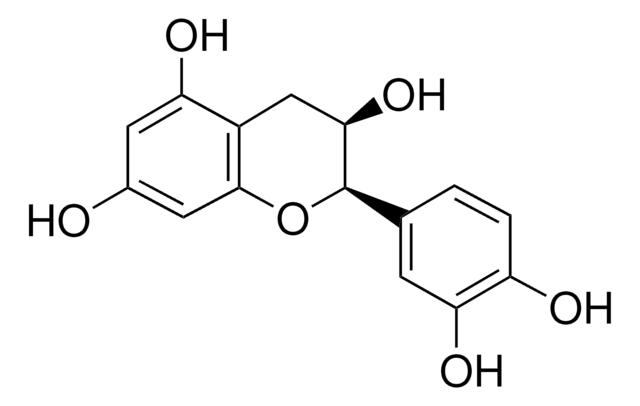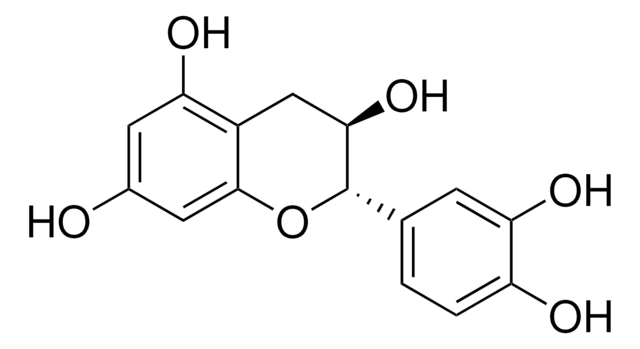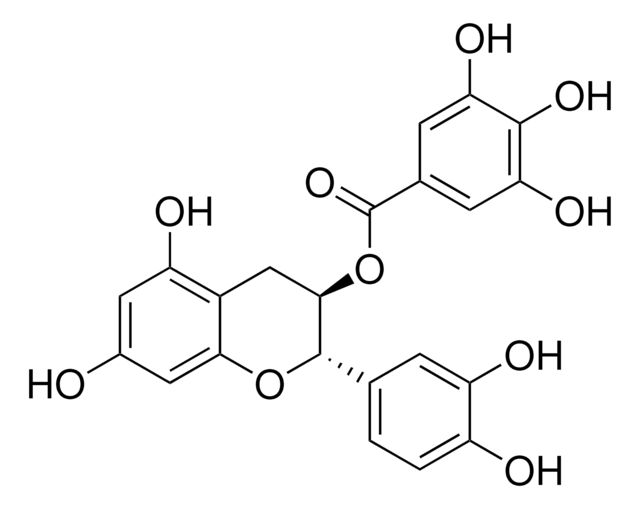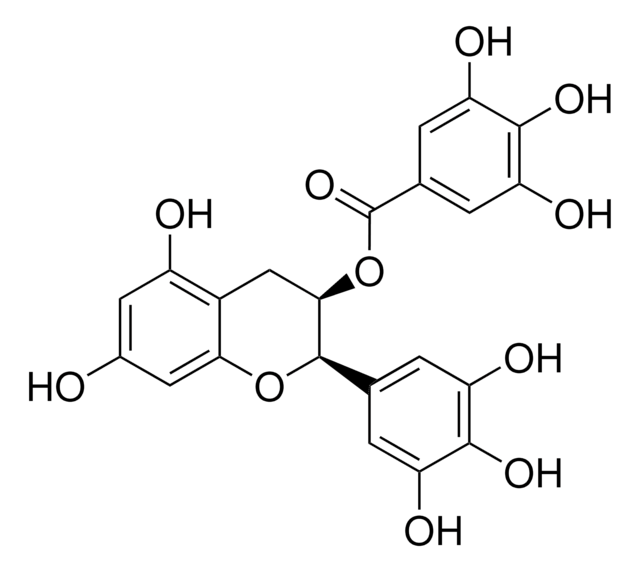PHR1963
(+)-Catechin
Pharmaceutical Secondary Standard; Certified Reference Material
Synonym(s):
(+)-Catechin, (+)-Cyanidanol, D-Catechin
About This Item
Recommended Products
grade
certified reference material
pharmaceutical secondary standard
Quality Level
agency
traceable to USP 1096790
API family
catechins
CofA
current certificate can be downloaded
packaging
pkg of 50 mg
application(s)
pharmaceutical
format
neat
storage temp.
2-8°C
SMILES string
O[C@H]1Cc2c(O)cc(O)cc2O[C@@H]1c3ccc(O)c(O)c3
InChI
1S/C15H14O6/c16-8-4-11(18)9-6-13(20)15(21-14(9)5-8)7-1-2-10(17)12(19)3-7/h1-5,13,15-20H,6H2/t13-,15+/m0/s1
InChI key
PFTAWBLQPZVEMU-DZGCQCFKSA-N
Looking for similar products? Visit Product Comparison Guide
General description
Pharmaceutical secondary standards for application in quality control provide pharma laboratories and manufacturers with a convenient and cost-effective alternative to the preparation of in-house working standards.
(+)-Catechin is a flavan-3-ol, that belongs to the family of polyphenolic flavonoids, called catechins. Found in green tea, it shows many health benefits, such as anti-oxidant, anti-inflammatory, anti-proliferative, and anti-platelet activity.
Application
- Development of an ultra-high performance liquid chromatography-triple-quadrupole tandem mass spectrometry (UHPLC-MS-MS) method for the simultaneous determination of eight catechins and four theaflavins in three types of tea samples
- Separation and estimation of six tea catechins and caffeine by an UHPLC method coupled to a UV detector from green tea samples
- Simultaneous analysis of five naturally occurring catechins by an isocratic HPLC method
- Infrared-assisted extraction (IRAE) followed by HPLC separation and quantification of catechin, epicatechin, and procyanidin B2 in grape seed samples
- Analysis of caffeine and catechins from green tea leaves by pressurized liquid extraction (PLE) using ethyl lactate, water, and ethyl lactate + water mixtures
Analysis Note
Footnote
Recommended products
related product
signalword
Warning
hcodes
Hazard Classifications
Eye Irrit. 2 - Skin Irrit. 2 - STOT SE 3
target_organs
Respiratory system
Storage Class
11 - Combustible Solids
wgk_germany
WGK 3
flash_point_f
Not applicable
flash_point_c
Not applicable
Choose from one of the most recent versions:
Certificates of Analysis (COA)
It looks like we've run into a problem, but you can still download Certificates of Analysis from our Documents section.
If you need assistance, please contact Customer Support.
Already Own This Product?
Find documentation for the products that you have recently purchased in the Document Library.
Customers Also Viewed
Our team of scientists has experience in all areas of research including Life Science, Material Science, Chemical Synthesis, Chromatography, Analytical and many others.
Contact Technical Service